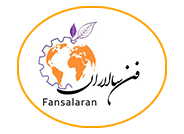Eli Lilly (LLY.N), opens new tab said on Friday that the European Medicines Agency (EMA) has recommended approval of its drug Kisunla for certain patients with early Alzheimer’s disease, reversing an initial decision from four months ago.
In March, the EMA said the treatment’s ability to slow cognitive decline was not significant enough to outweigh the risk of serious brain swelling in patients.
Keep up with the latest medical breakthroughs and healthcare trends with the Reuters Health Rounds newsletter. Sign up here.
Shares of the Indianapolis-based company were up 1.2% in morning trade.
Kisunla, along with Eisai (4523.T), opens new tab and Biogen’s (BIIB.O), opens new tab Leqembi, represents a long-awaited breakthrough after decades of unsuccessful attempts to develop drugs to combat the fatal, mind-wasting disease.
However, health regulators, cautious about the risks of severe brain swelling and bleeding, have adopted a particularly rigorous review process.
Kisunla, which is approved in more than 13 countries, could potentially follow Leqembi to become the second treatment available in the region that targets an underlying cause of Alzheimer’s disease.
Lilly said Alzheimer’s affects as many as 6.9 million people in Europe, with the figure expected to nearly double by 2050 as the population ages.
The European Commission is expected to make a regulatory decision on Kisunla in the coming months, the company added.
Like Leqembi, if approved, Kisunla would be allowed for use in people with only one or no copy of the ApoE4 gene, who also exhibit sticky clumps of amyloid beta protein in the brain—a hallmark of Alzheimer’s.
Patients with only one or no copy of ApoE4 are less likely to experience serious side effects such as brain swelling and bleeding.
In the United States, where both drugs are approved for patients with two copies of the ApoE4 gene, adoption has been slow.
Experts have also raised concerns about the high cost of Leqembi and its potential impact on broader adoption in cost-conscious European countries.






